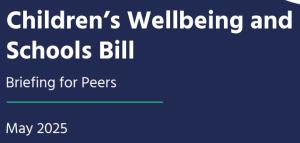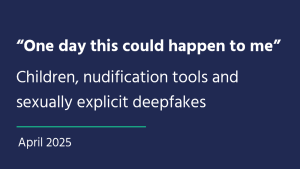In a world designed by – and mainly for – adults, children’s voices are very often not heard. It is for this reason that the role of the Children’s Commissioner was established in 2004 – to ensure children’s needs and best interests are advocated for at a national level. The Children Act 2004 gives the Children’s Commissioner statutory powers to access data relating to children held by public authorities. With the Victims and Prisoners Bill soon to complete its passage, this briefing presents new findings from police forces on child victims’ access to advocacy services following a crime.
At a local, individual level – children have statutory rights to advocacy in a number of circumstances. Looked after children, care leavers, disabled children, children with Special Educational Needs and Disabilities (SEND), children in mental health hospitals, and children in custody all rightly have a statutory right to independent advocacy. The Children’s Commissioner’s recent advocacy audit reveals there are serious shortcomings in how many of these statutory roles function in practice, however – it is an essential safeguard to children that the recourse is there. In these situations, there is recognition that children need support to access their rights and to navigate complicated legal systems.
There is one obvious group of children missing from this list: child victims of the most serious crimes. The need for independent advice, guidance and support is not always recognised when it comes to children who have experienced violence, abuse or exploitation. These children are traumatised, and are often thrust into a complex and sometimes re-traumatising criminal justice process with very little understanding of what it will involve, and very little support. While some children will have loving families who can help them, not all children do – and sometimes it is not appropriate or viable for family members or carers to solely advocate on a child’s behalf.
When a child experiences the most horrific crimes – sexual abuse, physical abuse, serious violence, coercive control, exploitation – they should have a statutory right to independent advocacy, to ensure they can access safety and justice. This advocate should be independent of, and work closely with, other professionals and adults in a child’s life. There are many examples of these child-specific victim advocate roles already established, such as Child Independent Sexual Violence Advisers (ChIsvas), Child Independent Domestic Violence Advisers (ChIdvas), Independent Child Trafficking Guardians (ICTGs), and Young People’s Violence Advisers (Ypvas). However support is incredibly patchy, as the figures in this briefing starkly demonstrate.
The Victims and Prisoners Bill creates a new advocacy role – Independent Public Advocates, to support people who have experienced major incidents and disasters. However, in their current form, these roles will not provide any direct support to child victims.
We must not put children in the ‘too difficult’ box. Children disproportionately experience the most serious crimes, and if we are truly committed to ensuring they heal and get justice, we have a duty to provide them with the support they to need to navigate services and support after harm.




